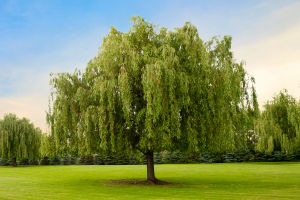Have you ever wondered if plants can actually "hear" the world around them? It sounds like something out of a science fiction movie, but in recent years, scientists have uncovered fascinating clues that suggest plants can indeed respond to sound in unexpected ways.
Today, we'll explore this remarkable ability. Together, we'll look at how plants sense sound, why they do it, and what it could mean for the way we care for our green companions.
Understanding Plant Sensory Systems
We often think of plants as passive beings, simply soaking up sunlight and water. But in reality, they are incredibly aware of their environment—just in ways that differ from us or animals.
Plants lack ears, of course, but they do possess cells and structures that can detect vibrations in their surroundings. When sound waves travel through the air or through solid surfaces like soil, they cause tiny mechanical vibrations. These vibrations can be sensed by plant cells, triggering specific responses.
In fact, research from the University of Western Australia found that plant roots can grow toward the sound of running water, even when there's no moisture present yet. This suggests that plants are using sound as a tool to help them locate resources.
Why Do Plants Respond to Sound?
You might be asking: Why would plants need to "hear" at all? Well, it turns out this ability can give them a serious advantage in nature.
1. Finding water: As we just mentioned, plant roots seem to detect the sound of moving water, guiding their growth to areas rich in moisture.
2. Defense against herbivores: Studies have shown that some plants increase their production of defensive chemicals when exposed to the sounds of caterpillars chewing. In other words, they "hear" the danger coming and prepare to defend themselves!
3. Communication and cooperation: There is also emerging evidence that sound may play a role in how plants communicate with each other. Certain plants release ultrasonic clicks that other plants might be able to pick up—though this area of research is still in its early stages.
Fascinating Experiments
Here's one of the most talked-about studies on plant hearing: Researchers exposed tomato and bean plants to the sound of stressed plants (recorded when plants were cut or deprived of water). In response, the healthy plants began altering their own behavior—closing their stomata (tiny pores on their leaves) and activating chemical defenses.
Another experiment used different sound frequencies to observe how plants would react. It turns out that not all sounds trigger the same response. Plants seem particularly sensitive to low-frequency vibrations, which may mimic the natural sounds of flowing water or approaching insects.
How We Can Apply This Knowledge
So, what does this mean for those of us who love plants and want to help them thrive? While the idea of playing classical music for your houseplants is charming, the scientific jury is still out on whether music directly benefits them.
However, understanding that plants are sensitive to sound and vibration can remind us to create a more supportive environment:
• Minimize harsh, mechanical vibrations around sensitive plants
• Consider the placement of speakers or loud appliances near indoor gardens
• Explore the use of gentle sound stimulation—some greenhouse experiments suggest low-frequency sound might promote growth in certain crops
It's an exciting area of research that could one day change how we design indoor gardens and large-scale agricultural systems alike.
The Future of "Plant Hearing" Research
We are just beginning to understand the complexity of plant sensory systems. Experts like Dr. Monica Gagliano, a pioneer in plant bioacoustics, suggest that plants may use sound in far more sophisticated ways than we can currently imagine.
More rigorous studies are needed to uncover the full potential of this ability. Could farmers one day use specific sound patterns to boost crop yields or deter pests naturally? Could sound therapy become part of professional plant care? These are questions that inspire ongoing research.
Let's Keep Exploring Together!
Isn't it amazing to think that the plants in our homes or gardens might be tuning in to the world around them in ways we never suspected?
We encourage you to stay curious and keep learning about the hidden lives of plants. Next time you water your favorite fern or admire a blooming rose, remember—there's a whole layer of plant perception that we're just starting to uncover.
Have you ever tried talking to your plants or playing music for them? We'd love to hear your stories and thoughts—feel free to share them with us!


